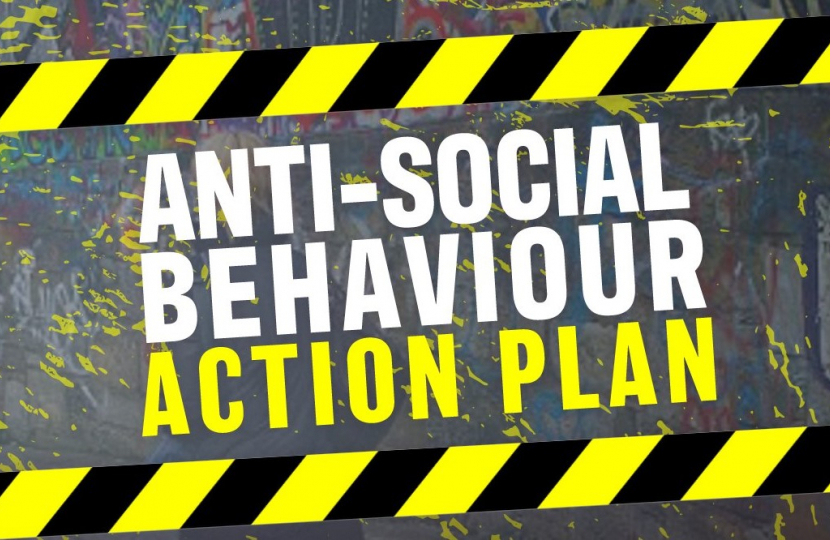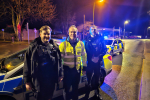
When I held my crime summit for constituents last year in Wantage, there were a range of issues local people wanted to raise with the police. But more than anything else, it was anti-social behaviour that came up time and time again.
While we’re fortunate to live in a relatively low crime area, we have our share of offences, from break-ins to drug-related crimes to rural crime. Indeed, increasing numbers of constituents writing to me about crime was what led me to put on the summit.
But it is anti-social behaviour that more people complained about than anything else and that’s why I’m very pleased the Government has launched its anti-social behaviour strategy this week.
Anti-social behaviour is a blight on areas, making people uncomfortable in their own home or town. It erodes pride in places and discourages people from going about activities they enjoy doing, like visiting the local park and – in the case of activities like fly-tipping – can create eyesores too.
The Government’s new strategy has 3 key prongs. There will be hotspot policing, with more officers in places where lots of anti-social behaviour currently happens. There will be immediate justice, in which the aim will be for people to clean up the messes they’ve made within 48 hours of the police recording the offence and deciding what the punishment should be. The community will have a say in what the punishment should be, perhaps picking litter, cleaning up graffiti or washing police cars.
The third prong will make it easier for communities to tackle anti-social behaviour, with a new digital service to report it as well as new powers for councils to regenerate areas and more support for youth clubs to remain open and deliver preventive measures.
Underneath the 3 prongs are a range of new measures, including increasing the maximum fine for fly-tipping from £400 to £1,000; banning laughing gas (the cannisters from which blight parks and other areas); and giving the police greater powers to test for a wider range of drugs when they arrest someone.
Two other measures are worth noting. One is to crack down on nuisance and organised begging that takes place at locations like cashpoints. The Government is committed to supporting rough sleepers, but there is a small group of people who are not rough sleepers and who undertake harmful begging.
There will also be new powers to evict tenants who are persistently disruptive through use of drink, drugs and loud music, something too many people currently experience next door.
Some people will be lucky not to experience any anti-social behaviour, but too many do – and the Government’s strategy will make it easier for them to live their lives in peace.

